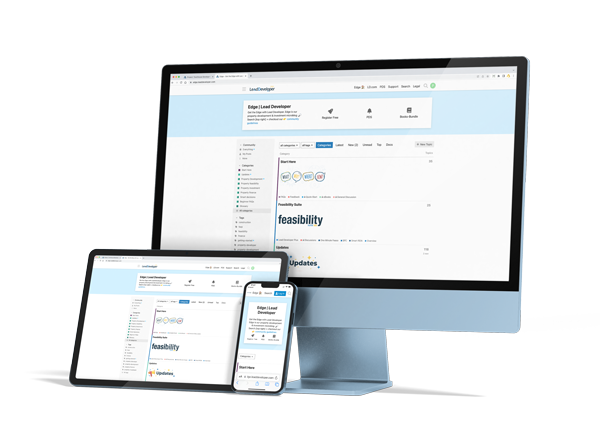Property Investment Due Diligence Checklist
1. Assessing Urban Lifestyle
- Observe Traffic, Noise, and Smells
- Visit Local Businesses: Explore cafes, parks, shops for community feel.
- Talk to Residents: Understand their living experiences.
- Check Schools and Amenities: Look at local schools, healthcare, recreational spaces.
- Assess Public Transport: Verify service availability and frequency.
- Research Safety and Crime Rate: Check local crime statistics, consult local police.
- Visit EPA Website: For air quality, noise pollution data.
2. Understanding Owners Corporation
- Review Fees and Levies: Understand regular and special maintenance costs.
- Examine Meeting Records: Gauge corporation operations and issues.
- Understand Rules and Regulations: Know about noise, property alterations rules.
- Inquire About Pet Policies: Check pet ownership restrictions.
- Learn About Management and Decision-Making: How to participate and express concerns.
- Understand Dispute Resolution: Process for internal disputes.
- Check Insurance Coverage: Especially for communal areas.
- Clarify Maintenance Responsibilities: What’s your vs corporation’s responsibility.
- Assess Financial Health: Check reserve funds, debts.
- Inquire About Future Plans: Potential impacts on living experience or property value.
3. Evaluating Location-Specific Factors
- Investigate Growth Area Contributions: If applicable.
- Check Conservation Obligations: Under Melbourne Strategic Assessment.
- Use DELWP Tools (now known as DEECA): For relevant location-specific information.
- Assess Flood and Fire Risks: Research land management and insurance implications.

 You are missing out if you haven’t yet subscribed to our YouTube channel.
You are missing out if you haven’t yet subscribed to our YouTube channel.
4. Rural Property Considerations
4.1. Lifestyle Compatibility
- Assess Land Use Compatibility: Confirm if surrounding farming activities align with your lifestyle expectations.
- Consider Noise and Odour Impact: Understand potential farming-related disruptions.
- Seek Additional Information: Visit Agriculture Victoria’s “New Landholders” for more insights.
4.2. Environmental Regulations
- Native Vegetation Removal: Check if you plan to remove native vegetation.
- Understand Legal Limitations: Review regulations on clearing native vegetation at DELWP’s “Native Vegetation”.
- Compliance with Clearing Processes: Ensure understanding of legal processes for vegetation removal.
4.3. Land Management Responsibilities
- Manage Weeds and Pests: Know your responsibilities for controlling invasive plants and animals.
- Resource for Managing Weeds/Pests: Visit Agriculture Victoria’s “Managing Invasive Plants and Animals”.
4.4. Building Regulations
- New Construction Feasibility: Determine if you can build new structures on the property.
- Consult Local Council: Contact local authorities for specific building regulations.
4.5. Land and Legal Considerations
- Adjoining Crown Land: Check if the property is adjacent to crown land.
- Water Frontage and Access: Verify if the property includes water frontage.
- Disused Government Roads: Identify if any disused government roads are part of the property.
- Crown Licences: Investigate any crown licences associated with the land.
- Research Further: Visit DEECA’s “Forests and Reserves” for comprehensive information.

Learn More
 Property development feasibility study [The key]
Property development feasibility study [The key]
5. Earth Resource Activity Checks
- Research Nearby Mining/Quarrying: And related permits.
- Consult DJPR’s Resources: For regional activity information.
6. Environmental Health Inspection
- Investigate Soil and Groundwater Contamination: Past contamination impacts.
- Verify Land Boundaries: Compare title document with actual property.
7. Planning and Building Regulation Compliance
- Understand Local Planning Schemes: Impact on property use.
- Check Zoning and Overlays: And title encumbrances.
- Inquire About Planning Permits: Existing or proposed in the area.
8. Safety and Compliance Evaluation
- Conduct Safety Inspections: Electrical, building compliance, hazards.
- Assess Pool/Spa Safety Obligations: Check regulations.
9. Cultural and Heritage Assessment
10. Insurance and Building Works Verification
- Inquire About Owner-Builder Insurance: Coverage for recent works.
11. Utility and Service Connections
- Check Utility Availability: Water, power, internet.
- Consider Connection Costs: And supplier options.
12. Legal Aspects and Buyer’s Rights
- Review Contract of Sale and Section 32: Understand legal terms.
- Consider Legal/Conveyancing Assistance: For contract navigation.
- Know Your Rights: In private sales, auctions, off-the-plan purchases.

Make It Real
 Start Your Journey Today!
Start Your Journey Today!
You are missing out if you haven’t yet subscribed to our YouTube channel.



